Daypack vs Backpack: What’s the Difference?
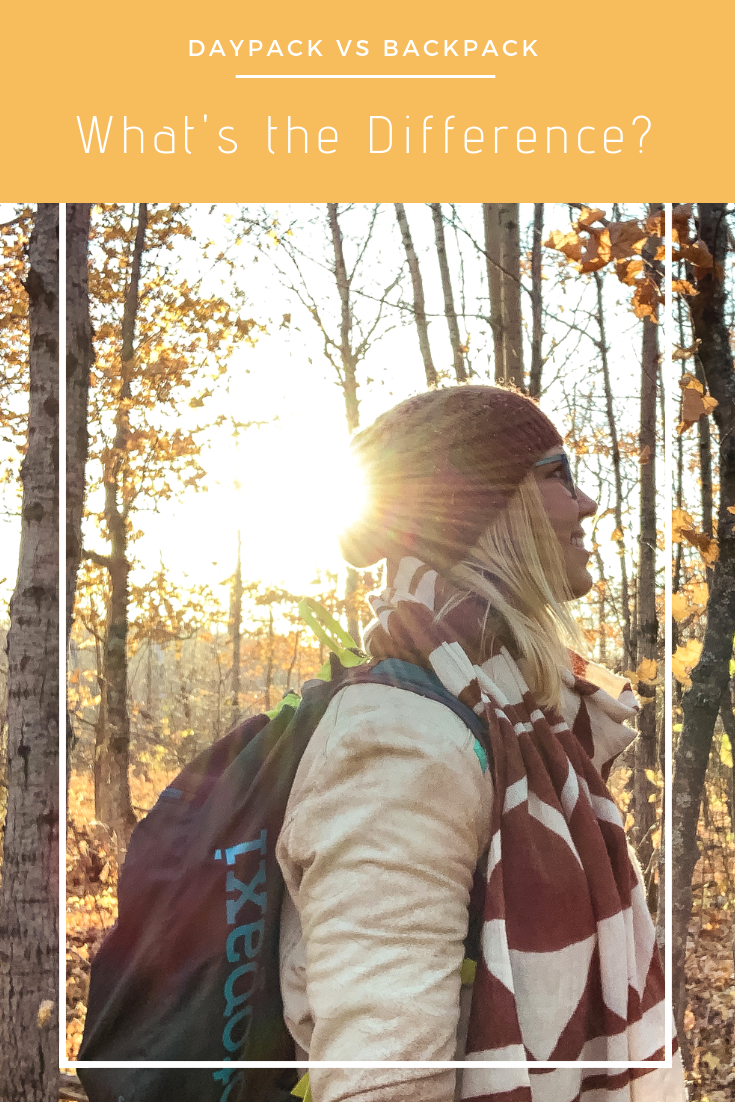
“What’s the difference between a daypack and backpack?” This is a question a lot of beginner backpackers have.
If you’re new to hiking or camping or have never fallen into the rabbit hole that is the sporting gear section in your nearby outdoor outfitter, you may have never really sat down and contemplated the daypack vs backpack debate. You may even be reading this and think they are the same ‘ol thing.
I know I did.
After all, they are both simply devices that you attach to your back and use to carry your water bottle and things, right?
Well, kind of.
Technically, anything with shoulder straps can be considered a backpack. Therefore, a hiking daypack IS a type of backpack. But not all backpacks are daypacks. A daypack is a small version of a backpack that is lightweight, big enough for a few extra small items and usually reserved for shorter, day hikes (hence the name).
Before I knew this subtle difference, I happily trotted into the nearest outdoor sports store, walked up to a sales rep and asking for a backpack – just to be shocked at the sheer size of the canvas bags that hung on the wall in front of me. These looked like they were better suited for lugging around megaliths or embarking on a yearlong trek of Chris McCandless fame.
I was doing neither of these things. I just wanted something to carry around my camera and a few granola bars, should my hunger strike in the middle of that weekend’s 6-mile day hike.
The very kind and very patient sales rep at the REI co-op noticed my confusion and gently let me know that I was, in fact, looking for a hiking daypack.
So, what is a daypack?
Like I mentioned above, the difference between a daypack and backpack essentially boils down to the size. But there are a few specific characteristics that set apart a daypack.
- They generally have a carrying capacity of 15L – 35L. Hiking daypacks and backpacks are measured in liters. Fifteen liters is usually big enough to give you room for a laptop or water bladder and a few extras. A 35L version is big enough for a weekend trip when you are staying in a hotel or an ultralight overnighter.
- They are lightweight. What is a daypack if not a lightweight way to keep your hands free while tooling around town or on a day hike?
- They are cheaper than backpacks. You can get an entry level daypack for $40. I’d run the other way if you find a backpack at this price point. This is a general rule. However, if you choose an expensive brand name (like North Face or Fjallraven), you could very well dish out just as much for an 18L canvas bag as a 55L round-the-world-ready backpack from Osprey.
- There is little or no back support (aka an internal frame). A hiking daypack may come with some padding to make it more comfortable, but most daypacks are meant to be compressible (aka packable) and not worn for long periods of time. A backpack will come with an internal frame for better back support.
- They don’t have padded shoulder straps. Again, a daypack backpack is not made for very heavy loads or long treks. The best hiking daypacks WILL come with a small hip strap to snap around your waist and a sternum strap for across your chest, though. This will help keep it close to your body and prevent it from bobbing around while you hike.
- They are top loading. This means that the main feature of a hiking daypack is the opening at the top. This is how you will get small items you need for a day hike in the pack. Backpacks will usually have a side opening and a bottom section where you can stuff a sleeping bag.
- They can be canvas, leather or another synthetic material. Depending on whether you are looking for something stylish to trek around town with or just a hardy hiking daypack, the size and limited carrying capacity allow daypacks to have more material options. Backpacks generally need to be water and weatherproof (or resistant) to meet the demands of overnight trips or extended travel.
- They tend to be a bit more stylish. Daypack backpacks are very versatile. People often use daypacks on the trail, in the coffee shop and even at work. So, companies usually make a lot more options to fit everyone’s style.
Beyond these differences between a daypack and backpack, there are a lot of small features between difference daypacks. Most of these come down to personal preference.
For example, do you want a computer sleeve in it? Multiple components for camera gear, or one big space to fit everything? External pockets to hold a water bottle?
Figure out what a daypack will be doing for you, and then buy one with those features.
I personally wasn’t sure what features were important to me, so I started with a great all-around hiking daypack from REI before picking the larger backpack I wanted.
When to choose a daypack vs. a backpack
When you are choosing whether you need to buy a daypack or backpack, there are two common thoughts that cross might cross your mind:
Bigger is always better – you can pack more and have it all right there for you.
Smaller – and therefore, lighter is best.
I like to lean toward the second bullet point myself. It teaches you to pack only what you need and lets you have fun without a heavy pack weighing you down. Plus, we’re all just getting older each day and back pain is a REAL buzz kill.
The truth is, most outdoorsmen and women have both. Because each has a specific use.
Getting started
When you start diving into the world of outdoor adventures, it’s a good idea to understand what situations call for a daypack vs backpack.
A daypack (hiking-specific or otherwise) is great for day hikes, daily commutes, coffee shop runs, beach days and urban adventures. You can use it as a carry-on or camera bag. It can even be packed into larger luggage or backpacks to use for small trips when you are traveling.
A larger backpack with support is ideal for multi-day camping trips, around-the-world travels, and anything that requires heavy gear. I level up around 25 pounds, but that will be your preference.
Are you a beginner just dipping your toes in hiking and camping? Getting a high-quality hiking daypack is a great starting point, and definitely the most cost-effective option. But please don’t go into an overnight trip with anything more than a small unpadded canvas daypack backpack.
Still have questions? Let me know and I’ll do my best to answer them!
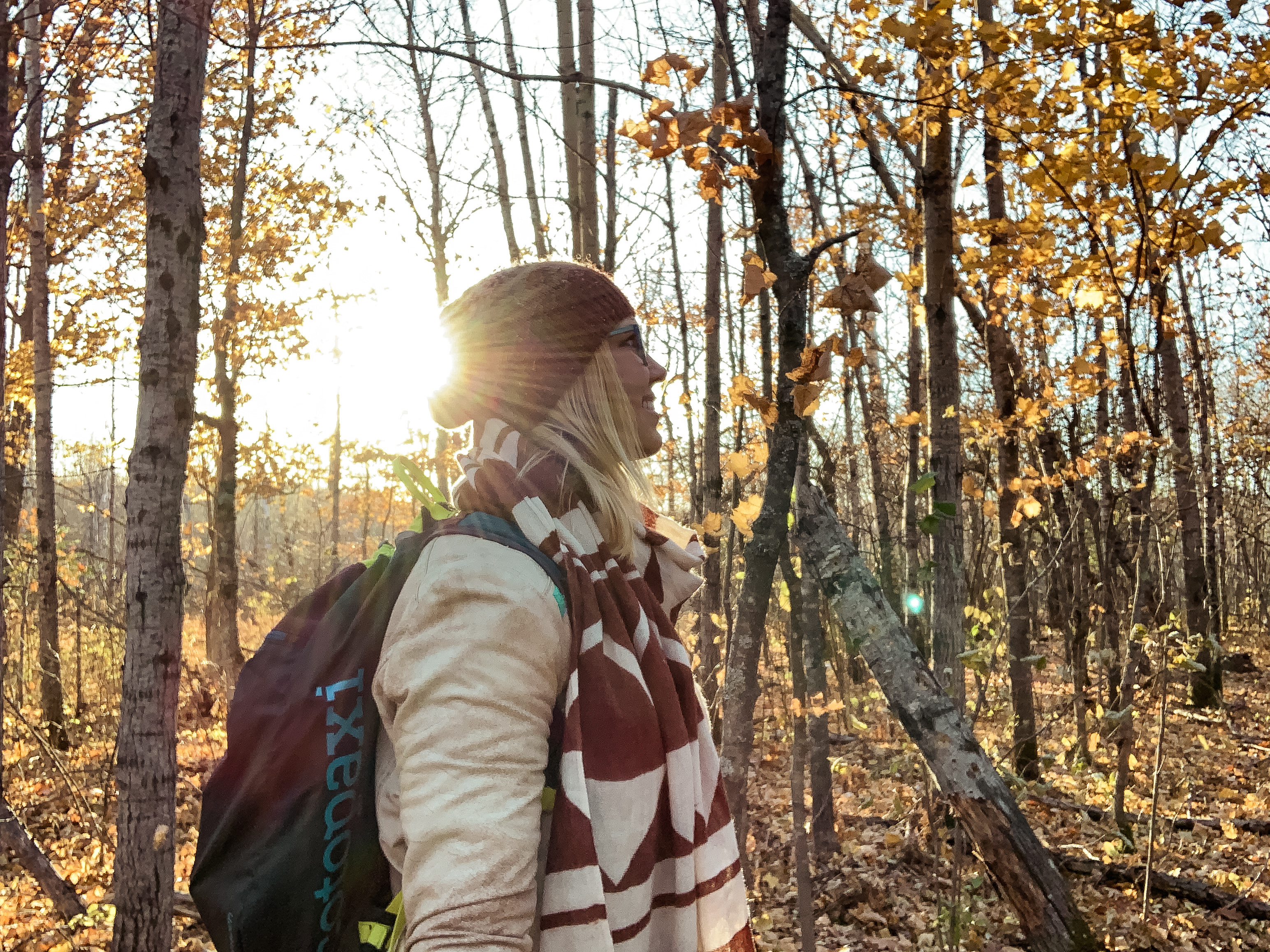
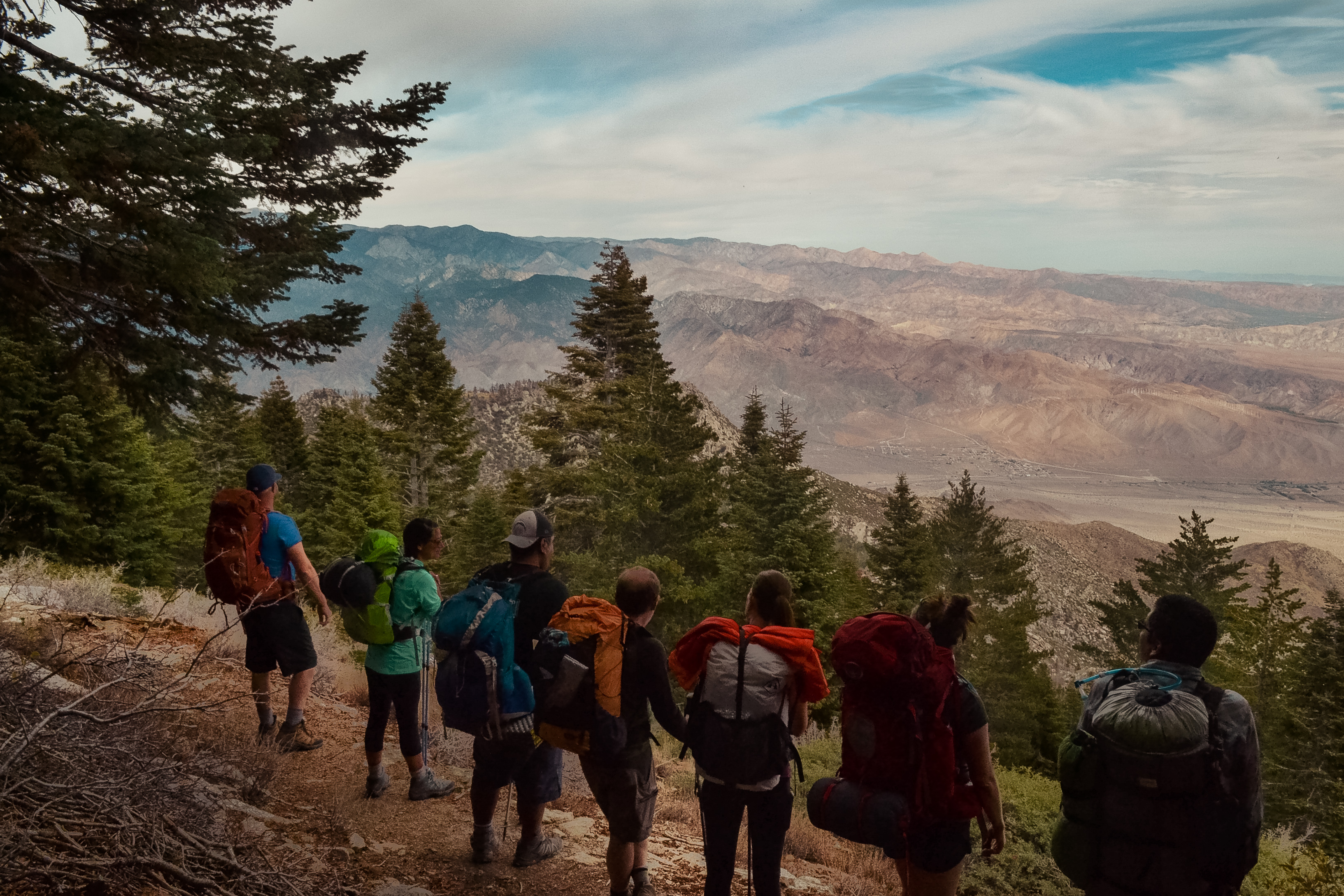
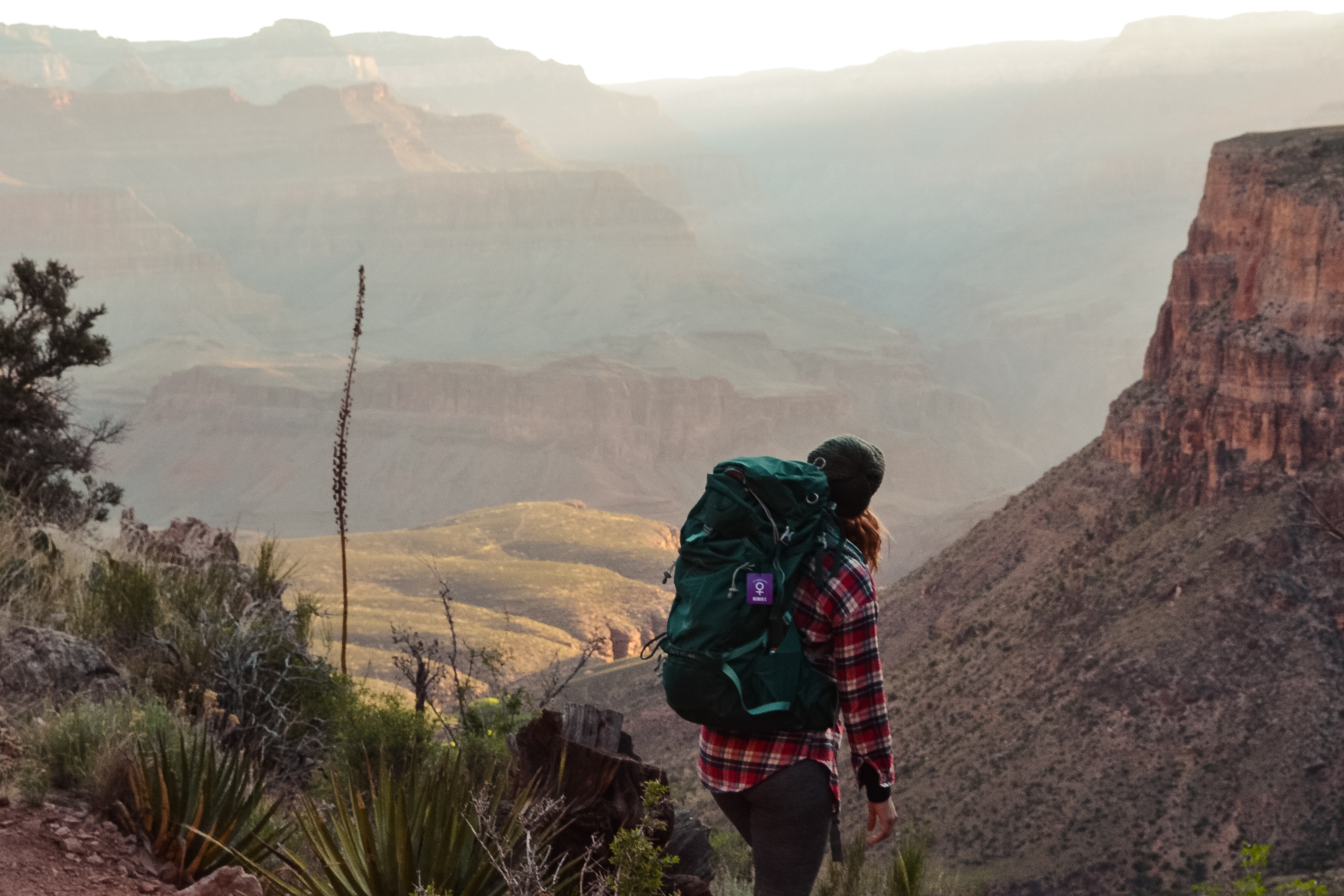
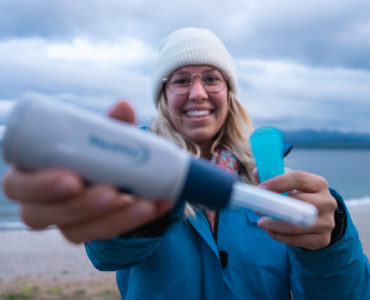

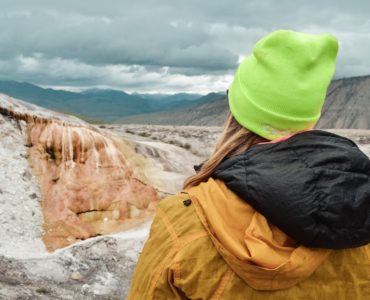

A definitive guide on common backpack parts and definitions. Learn all there is to know so you can make an informed choice when shopping for a new backpack.
nice article. Found it looking for material backing up the idea of people using a day pack when traveling, as I’ve launched a patented design travel pack that integrates with a day pack – and a hip pack! Would love to hear what you think: https://www.kickstarter.com/projects/ideamountain/the-journeytm-carrying-solution-the-right-bag-all-the-time
Thank you so much for popping by. I love your idea. Multi-functional pieces are key.
I pretty much call every pack which is carried around back a backpack no matter how small or large. However, it’s good to know in case I hear variations referred to by others. That way we are on the same page. Haven’t tried camping backpacks yet, just day hiking with my dog for now!
You’re certainly not wrong to do so! Daypacks will probably be much lighter – a breathable nylon or other light material so those hikes with your dog are all about having fun and not sweating through your shirt where your pack is. More breathable than a school backpack you might get from, say, Target. But much less durable than a multi-day pack. It’s great to hear about someone just starting to get out there! I personally believe there is no wrong way to start (as long as you being safe) – the best gear is the gear you have right now. You can upgrade and get more technical as you learn what you like to do. I don’t have a dog, but I know you can even get a pack for him/her 🙂
I honestly had no idea these Daypacks existed. I used my hershel backpack on my hikes in red rock canyon (LV) last month and I was planning on switching to my Swiss gear back pack and decided to just google hiking backpacks and found this.
I probably need a Daypack since all I’m interested in right now is day hikes. Thanks
A day pack is probably just the ticket for you, indeed. Lightweight, maybe something with just a bit of support and a hip belt and you’re good to go!